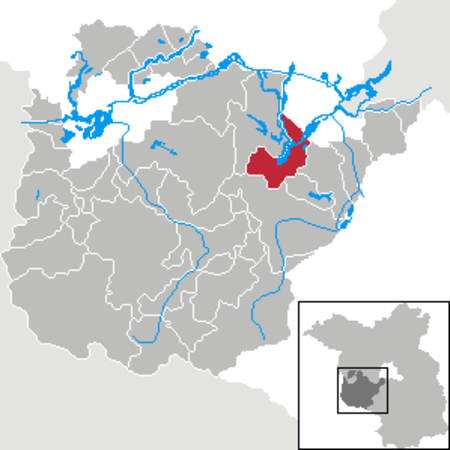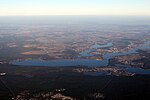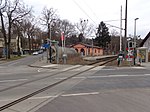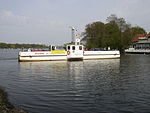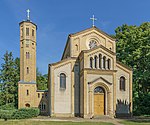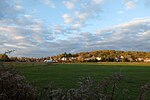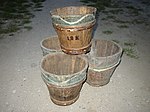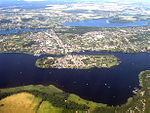Brandenburg ([ˈbʁandn̩bʊʁk] (listen); Low German: Brannenborg; Lower Sorbian: Bramborska [ˈbrambɔrska]), officially the State of Brandenburg (German: Land Brandenburg; Low German: Land Brannenborg; Lower Sorbian: Kraj Bramborska), is a state in the northeast of Germany bordering the states of Mecklenburg-Vorpommern, Lower Saxony, Saxony-Anhalt, and Saxony, as well as the country of Poland. With an area of 29,480 square kilometres (11,382 square miles) and a population of 2.5 million residents, it is the fifth-largest German state by area and the tenth-most populous. Potsdam is the state capital and largest city, and other major towns are Cottbus, Brandenburg an der Havel and Frankfurt (Oder).
Brandenburg surrounds the national capital and city-state of Berlin, and together they form the Berlin/Brandenburg Metropolitan Region, the third-largest metropolitan area in Germany with a total population of about 6.2 million. There was an unsuccessful attempt to unify both states in 1996 and the states cooperate on many matters to this day.
Brandenburg originated in the Northern March in the 900s AD, from areas conquered from the Wends. It later became the Margraviate of Brandenburg, a major principality of the Holy Roman Empire. In the 15th century, it came under the rule of the House of Hohenzollern, which later also became the ruling house of the Duchy of Prussia and established Brandenburg-Prussia, the core of the later Kingdom of Prussia. From 1815 to 1947, Brandenburg was a province of Prussia.
Following the abolition of Prussia after World War II, Brandenburg was established as a state by the Soviet Military Administration in Germany, and became a state of the German Democratic Republic in 1949. In 1952, the state was dissolved and broken up into multiple regional districts. Following German reunification, Brandenburg was re-established in 1990 and became one of the five new states of the Federal Republic of Germany.
The origin of the name Brandenburg is believed to be West Slavic brani boru, meaning 'war forest'.
